Jojobaplant
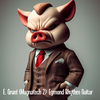
Joined: Feb 17, 2020
Posts: 169
46397




|

Posted on May 11 2023 09:03 AM
So, I've came across this question over the last few days and I would like to know what everybody's opinion is on the use of rhythm guitar, organ or any other accompanying instruments in your tunes. Should it be just bass and lead or would more instruments be better?
For myself I definitively say accompanying instruments add value and depth to the tunes. If you listen to any Magnatech tune, you will see that there's always a rhythm guitar, mostly even two to get that "splash" effect on which the lead floats, an organ if I can get a hold of the guy who does the organ for me, etc.
Cheers from Dublin
— Albums:
_Introducing; Impala '59; An Evening with; Herr Magnatech Bittet Zum Tanz; Europa
Changing label.
https://magnatech.bandcamp.com
https://www.facebook.com/magnatechmusic
https://www.magnatech-music.com
|
Samurai
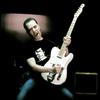
Joined: Mar 14, 2006
Posts: 2291
Kiev, Ukraine




|

Posted on May 11 2023 09:35 AM
I was working in trio format for many years and only last year discovered all the existing possibilities of multiple instrument arrangements. I still love trio format for it’s power and conciseness but now find that second or third gutar, synth, percussion, trumpets or whatever may really add a lot to your creative possibilities.
— Waikiki Makaki surf-rock band from Ukraine
https://linktr.ee/waikikimakaki
Lost Diver
https://lostdiver.bandcamp.com
https://soundcloud.com/vitaly-yakushin
|
Jojobaplant

Joined: Feb 17, 2020
Posts: 169
46397




|

Posted on May 11 2023 10:56 AM
Samurai wrote:
I was working in trio format for many years and only last year discovered all the existing possibilities of multiple instrument arrangements. I still love trio format for it’s power and conciseness but now find that second or third gutar, synth, percussion, trumpets or whatever may really add a lot to your creative possibilities.
Exactly. I myself only worked in a one-guitar configuration back in the early 1980's for a few years, but then a second guitar was added and the whole sound changed: it became fuller and you get better options in the harmonic and melodic fields. For Magnatech I decided from the get-go that it should have at least 2 guitars not only because of the reason above, but also because I simply like the sound of two guitars.
— Albums:
_Introducing; Impala '59; An Evening with; Herr Magnatech Bittet Zum Tanz; Europa
Changing label.
https://magnatech.bandcamp.com
https://www.facebook.com/magnatechmusic
https://www.magnatech-music.com
|
cricketseed
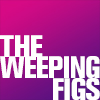
Joined: Dec 09, 2019
Posts: 46
North Carolina

|

Posted on May 11 2023 11:24 AM
I like a rhythm guitar (or a secondary guitar that's playing something complementary to the lead). Just my personal taste, but I sometimes find organ parts can make a song muddy or too busy.
—
https://hyperfollow.com/weepingfigs
|
Joelman
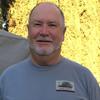
Joined: Sep 07, 2006
Posts: 1506
Redlands, CA




|

Posted on May 11 2023 11:40 AM
Almost all the early surf bands had lead, rhythm, and bass guitars along with piano, and drums.
As did most, rock and roll bands. Occasionally various horns would be added.
I feel that a lead, bass guitar and drums can make great music by themselves like, ie. Slacktone.
However, a much fuller/coloring sound can be achieved with more instruments.
Joel
Last edited: May 11, 2023 11:41:37
|
ArtS

Joined: May 09, 2008
Posts: 1406
Isle of Kent, MD







|

Posted on May 11 2023 02:28 PM
Multiple. Allows for better and more interesting melody composition and counterpoint. Plus cool sound effects and gets another person in the band to pay for beer!!!
— Surf.The most dangerous of genres...
Surfcat
MARCH OF THE DEAD SURFERS! (2024) - Agent Octopus
THE JOURNEY HOME - Free download (2025) - Agent Octopus (Single)
BANDCAMP - Agent Octopus
YOUTUBE - Agent Octopus Surf
BANDCAMP - Reverb Galaxy
|
TallTenor
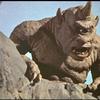
Joined: Nov 30, 2022
Posts: 81
Coast of the Great Lakes

|

Posted on May 11 2023 03:23 PM
Multiple for recording. Trio live!
— Kitten and The Tonics
https://kittenandthetonics.com/
|
Jojobaplant

Joined: Feb 17, 2020
Posts: 169
46397




|

Posted on May 11 2023 04:48 PM
cricketseed wrote:
I like a rhythm guitar (or a secondary guitar that's playing something complementary to the lead). Just my personal taste, but I sometimes find organ parts can make a song muddy or too busy.
An organ really depends. In my book I prefer mainly a Farfisa or a Vox organ, when then just plays the chords played, so like it becomes a non-intrusive sort of carpet on which everything else kinda lays. If you do solo's with the organ, which I have in one or two of my new tracks, don't do anything else than that (as in no soloing guitar at the same time unless it's the same melody) else it indeed becomes a bit chaotic.
— Albums:
_Introducing; Impala '59; An Evening with; Herr Magnatech Bittet Zum Tanz; Europa
Changing label.
https://magnatech.bandcamp.com
https://www.facebook.com/magnatechmusic
https://www.magnatech-music.com
|
Jojobaplant

Joined: Feb 17, 2020
Posts: 169
46397




|

Posted on May 11 2023 04:57 PM
Joelman wrote:
Almost all the early surf bands had lead, rhythm, and bass guitars along with piano, and drums.
As did most, rock and roll bands. Occasionally various horns would be added.
I feel that a lead, bass guitar and drums can make great music by themselves like, ie. Slacktone.
However, a much fuller/coloring sound can be achieved with more instruments.
Joel
You're right, back then bands consisted of at least 4 persons, especially when playing instrumental music. Since I do Magnatech the "old" way and basically am influenced by European instrumental music and Surf of the 1st wave and the 2nd wave up until ~1985, the music I heard first when I was young, it would be only natural for Magnatech to have at least one or two accompanying instruments. In some tunes I even use a background choir as that enhances and beautifies things even further. I've never been sure why modern bands hardly, or not at all use background choirs to accent certain parts. I mean Dick Dale and Duane Eddy from the old days did use it in some tunes. Heck Duane Eddy sometimes even used strings (Because they're young). I did that only once in one of the tunes of my new LP at the end of this year and that was mainly because the original had them en masse and any good instrumental interpretation of that song simply could not do without in order to preserve the character of the song. Have a listen to the unmastered version of that song what that sounds like (this tune contains background choir, staccato violins in the refrains and piano with a little rhythm guitar):
https://youtu.be/lNgzgnZ8hdM
You're going to need a really good guitarist if you're going to do guitar driven instrumental music with a trio imo. A guitarist that can fill up the holes in the tune, else you run the risk of the tune sounding kind of "empty". Whilst that does have its punk-charm, I do think indeed that a rhythm or any other accompanying instrument can fill up those holes.
— Albums:
_Introducing; Impala '59; An Evening with; Herr Magnatech Bittet Zum Tanz; Europa
Changing label.
https://magnatech.bandcamp.com
https://www.facebook.com/magnatechmusic
https://www.magnatech-music.com
Last edited: May 11, 2023 17:11:12
|
Jojobaplant

Joined: Feb 17, 2020
Posts: 169
46397




|

Posted on May 11 2023 05:02 PM
TallTenor wrote:
Multiple for recording. Trio live!
The risk you run when recording with multiple guitar parts or a rhythm guitarist and performing it as a trio without such a rhythm guitarist is in my opinion that ppl in the audience will say "hey, on the album it sounds well different than it sounds live".
Once I have a backing band formed, I want it to be with two rhythm guitarists because mostly record two rhythm parts: an effect- and reverbless rhythm guitar and a heavily reverbed rhythm guitar and then a lead guitar with reverb, but less reverb than the second rhythm guitar as I discovered that if you do that, you get that "splash" idea in your sound and, as Sean Berry put it in Continental magazine about Magnatech: it sounds both like American Astronauts AND the Dutch/German Astronauts.
— Albums:
_Introducing; Impala '59; An Evening with; Herr Magnatech Bittet Zum Tanz; Europa
Changing label.
https://magnatech.bandcamp.com
https://www.facebook.com/magnatechmusic
https://www.magnatech-music.com
|
synchro

Joined: Feb 02, 2008
Posts: 4564
Not One-Sawn, but Two-Sawn . . . AZ.





|

Posted on May 11 2023 11:20 PM
I think that both approaches have their place. When I’m playing live, I strongly prefer being in a trio setting. It gives me a lot of freedom, and I just love the sound of the guitar and the bass. I also am known to use some chord substitutions, on an ad-hoc basis, and it’s pretty much impossible for a rhythm guitarist to know what I’m going to play. When I do play with a rhythm player, I prefer that they stay in the lower register, using three note voicings on the lowest four strings.
Coincidentally, I wrote a little Surf song, and spent last night experimenting with recording it. I used a simple drum track and played the melody solo, as a guide track. Next, I came in with a Bass VI, shooting for a double lead guitar effect, spaced an octave apart. It didn’t work well, because the Bass VI pretty much overwhelmed the guitar, unless I put it so low in the mix as to be almost inaudible.
By the time I finished, I had a lead line, a Bass VI solo, a rhythm guitar part and a bass, which did a simple root-V bass line, until the Bass VI played its solo, at which point I switched to a simple whole note pad, that stayed out of the VI’s way.
It’s a throwaway track, but served as an example of how critical things can get, when arranging. I’m going to take another crack at it this weekend, and, hopefully, come up with a more streamlined approach. I think I’ll start with the bass line, record the lead over that, give the VI its moment in the sun, and then decide what to do about the rhythm guitar.
— The artist formerly known as: Synchro
When Surf Guitar is outlawed only outlaws will play Surf Guitar.
|
Samurai

Joined: Mar 14, 2006
Posts: 2291
Kiev, Ukraine




|

Posted on May 12 2023 01:04 AM
I think we all have a stories how we came to our band or project line up. For me it was trio simply because at the time we had only three people who wanted to play surf in Kyiv, drummer and two guitar players. So the second one had to take bass) During the years I wanted to add a second guitar but wasn’t really successful in finding the right person. The dream of having keyboard player just remained a dream.
Surely playing in trio is both challenging and fun, I never was a really skillful guitar player but I think this challenge helped me to improve a lot. Limitations also bring up your creativity and this is surely the case.
Also a lot of my favorite rock and blues bands are trio (ZZ Top, Rush, Motorhead, Muse, Cream, Grand Funk Railroad, Hendrix, SRV and multiple blues projects) so I guess there is something in it.
I think if I would ever manage to gather band here in Germany it will be trio or four piece with two guitars, not solo and rhythm but more like interweaving parts.
But now working as a home recording composer and player it’s so much fun in making some more complicated arrangements and also exploring different instruments and genres.
— Waikiki Makaki surf-rock band from Ukraine
https://linktr.ee/waikikimakaki
Lost Diver
https://lostdiver.bandcamp.com
https://soundcloud.com/vitaly-yakushin
Last edited: May 12, 2023 01:06:11
|
Jojobaplant

Joined: Feb 17, 2020
Posts: 169
46397




|

Posted on May 12 2023 05:21 AM
synchro wrote:
When I do play with a rhythm player, I prefer that they stay in the lower register, using three note voicings on the lowest four strings.
When I play two rhythm guitar parts in a tune, one plays the chords in power chord form, so only the lowest three strings along with the "clean" rhythm guitar part that plays the full chords without any effect. When power chords are played with a full reverb over the clean rhythm part, it more or less gives me the result I am generally looking for. In my opinion too much reverb (ie on lead and rhythm) overwhelms the tune, so a balance has to be found and in my case I add in a "dry" rhythm part and add less reverb to the lead than I have in the second rhythm part.
Coincidentally, I wrote a little Surf song, and spent last night experimenting with recording it. I used a simple drum track and played the melody solo, as a guide track. Next, I came in with a Bass VI, shooting for a double lead guitar effect, spaced an octave apart. It didn’t work well, because the Bass VI pretty much overwhelmed the guitar, unless I put it so low in the mix as to be almost inaudible.
I am planning to buy me a 6 string bass as well, partly because I like the sound of a 6 string bass, partly because I love lower tone melodies, plus I can use the instrument as a lead AND as actual bass, so it's 2-in-1  Edit: I did have a question about 6-string basses though: if you only play the higher strings on the instrument, does it still need a separate amp? I mean, I can always buy a bass box of the same size as my Quilter, or a cheap second hand bass amp, space permitting though. Edit: I did have a question about 6-string basses though: if you only play the higher strings on the instrument, does it still need a separate amp? I mean, I can always buy a bass box of the same size as my Quilter, or a cheap second hand bass amp, space permitting though.
By the time I finished, I had a lead line, a Bass VI solo, a rhythm guitar part and a bass, which did a simple root-V bass line, until the Bass VI played its solo, at which point I switched to a simple whole note pad, that stayed out of the VI’s way.
It’s a throwaway track, but served as an example of how critical things can get, when arranging. I’m going to take another crack at it this weekend, and, hopefully, come up with a more streamlined approach. I think I’ll start with the bass line, record the lead over that, give the VI its moment in the sun, and then decide what to do about the rhythm guitar.
How do you create tunes? Are you actually sitting down at your desk and write out the chords and melody lines/riffs? I sometimes do that, when I have something in mind, but sometimes I also just play a set of chords I know fit together, hustle them a bit to get chorus, refrain, bridge etc., create a simple metronome tick and then just jam on top of that to see what comes rolling out of the tree. I'd say 4 out of 10 times sth useful comes from that. Other times I take the chords from an existing (vocal song) add a few (missing) chords and create a new melody on top of that ending in a result that is nowhere near the original song I took the chords from, so I won't get any trouble concerning copy rights, royalties etc.
— Albums:
_Introducing; Impala '59; An Evening with; Herr Magnatech Bittet Zum Tanz; Europa
Changing label.
https://magnatech.bandcamp.com
https://www.facebook.com/magnatechmusic
https://www.magnatech-music.com
Last edited: May 12, 2023 05:39:05
|
Jojobaplant

Joined: Feb 17, 2020
Posts: 169
46397




|

Posted on May 12 2023 05:35 AM
Samurai wrote:
I think we all have a stories how we came to our band or project line up. For me it was trio simply because at the time we had only three people who wanted to play surf in Kyiv, drummer and two guitar players. So the second one had to take bass) During the years I wanted to add a second guitar but wasn’t really successful in finding the right person. The dream of having keyboard player just remained a dream.
Surely playing in trio is both challenging and fun, I never was a really skillful guitar player but I think this challenge helped me to improve a lot. Limitations also bring up your creativity and this is surely the case.
Also a lot of my favorite rock and blues bands are trio (ZZ Top, Rush, Motorhead, Muse, Cream, Grand Funk Railroad, Hendrix, SRV and multiple blues projects) so I guess there is something in it.
I think if I would ever manage to gather band here in Germany it will be trio or four piece with two guitars, not solo and rhythm but more like interweaving parts.
But now working as a home recording composer and player it’s so much fun in making some more complicated arrangements and also exploring different instruments and genres.
For me it was always punk/garage bands and in the last phase guitar-pop, so setups have always been basic: drums, bass, r-guitar. Later, when the general mood at the time wasn't so anti-lead guitar any longer in the early 80's Dutch punk-scene, an extra guitarist was added and that last form it stayed in any of the 8-9 bands I played in. Sometimes we had an organ/electric piano, but that was sparsely and only in the last phase. And the genres moved from chaos-punk (ergo not really being able to play the instruments) to slightly less chaos to a bit more streamlined to more streamlined, in which phase I started to write tunes and songs - I wrote my very first 2 "surf" instrumentals in that period. As a lot of surf instrumentals can be qualified as "aggressive" and we were young and stupid, one of the tunes I wrote back then was an "aggressive" tune that I couldn't even play myself at the time because I wanted to have it double picked (or tremolo picked, actually still not sure how it's called) and I couldn't do that at the time, lol. You will find a re- re- re-recording of that "aggressive" tune as bonus track on my upcoming EP - it will only be on the actual CD, not as download. The other one you can find as opening track on my first album.
So you're right, we all have our own stories on how we got here. Magnatech may be only 3.5 years old, but has an over 40 years old root so to say. If life hadn't gotten in the way and I had stayed single in 1992, chances are, I'd be an old pirate in the instrumental scene  Now I am just an old pirate in a new band, lol. But nevertheless, John Miles' famous words "music was my first love - and it will be my last" have guided me through my entire life. Now I am just an old pirate in a new band, lol. But nevertheless, John Miles' famous words "music was my first love - and it will be my last" have guided me through my entire life.
I am glad you like the way you make music now - I do as well. When writing tunes in the context of a band always gives the hassle that there is someone who doesn't like a part of the song and a lot of times that is the part you like best. This way you have complete control over what the tune will be and I kinda like that.
— Albums:
_Introducing; Impala '59; An Evening with; Herr Magnatech Bittet Zum Tanz; Europa
Changing label.
https://magnatech.bandcamp.com
https://www.facebook.com/magnatechmusic
https://www.magnatech-music.com
Last edited: May 12, 2023 05:46:54
|
cirecc
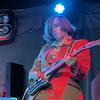
Joined: Mar 06, 2006
Posts: 311
seattle, wa


|

Posted on May 12 2023 04:40 PM
This will not surprise some people, but I always like having accompanying instruments. Trios can sound great but definitely benefit from arranging songs as a trio. We've played with The Delstroyers frequently over the years who are a fantastic and big sounding trio. They do have some extra parts on their recordings though. Sometimes, I envy the trios . . . .
When The 'Verb started, we were a four piece with Jake driving on rhythm guitar. This was born out of us not having a drummer for a few months when we first started writing songs back when we were teenagers. Once we were able to add Mike, it freed us up to have more variety. Mike could be another lead guitar as well as keys. I could then also play trumpet live without us losing lead guitar at the same time. When The 'Verb recorded, we would show up to the studio well rehearsed and record live. The first full length album, "Reverberated for Your Pleasure" we did 18 songs (16 plus two secret cover tracks that weren't supposed to be on the CD master - oops) recorded and mixed in three long days. Because of this, we did not do very many overdubs or additional parts. (We also tended to play the songs a little faster than we meant to - another oops.) For the second record that wasn't released until years after we stopped performing regularly, "Only 'Verb Can Break your Heart", we did 13 songs in five days with a bit more going on (more horns, piano, acoustics, etc.).
Fast forward years and a few non-surf bands later, The Desolate Coast was born out of a quick side project between me and Wendell who had drummed for a couple other bands with me and filled in on drums for The 'Verb. With just the two of us, there were no illusions of trying to replicate a live product, so there were a lot of layers, additional parts, horns, and piano on the first record, "Time Slips Away". When it was coming time to release that, we formed a five piece group (2x guitar, baritone guitar, bass, drums, and a couple of live songs with trumpet), and I had to figure out how to cut the parts down to five.
Now, starting back with our second album coming out next week, "Without A Planet", I arrange some songs thinking about we could perform it live and on record, and others I don't worry about that and just think of what we could do on the record. Either way, the album version will probably feature more parts and accompaniment than a live version. Some songs, I don't even bother thinking about performing live. I like the freedom of trying different parts and instruments on the recording and don't worry about if it's traditionally surf or not.
I just try to make it pretty and catchy. The worst that will happen is I just throw it out and have to write something else.
Here's the latest video from the upcoming album that has a bunch of guitars, brass, and choral like backing vocals. Live, we play it rhythm, two leads, bass, and drums though.
— -Eric
New music!
https://thedesolatecoast.bandcamp.com/releases
Spotify
Also:
https://theverb.bandcamp.com/
https://www.facebook.com/theverbseattle/
|
Tele295
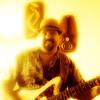
Joined: Feb 16, 2012
Posts: 153
Rincon Beach, California, USA

|

Posted on May 12 2023 06:17 PM
I always prefer someone laying down the chords
|
Jojobaplant

Joined: Feb 17, 2020
Posts: 169
46397




|

Posted on May 12 2023 07:13 PM
cirecc wrote:
This will not surprise some people, but I always like having accompanying instruments. Trios can sound great but definitely benefit from arranging songs as a trio. We've played with The Delstroyers frequently over the years who are a fantastic and big sounding trio. They do have some extra parts on their recordings though. Sometimes, I envy the trios . . . .
A couple of years ago I saw this surf trio and with trios I have sth like: the guitarist needs to be a great soloist as well as a great rhythm guitar player, else the whole thing sounds terribly empty. There's a few, but not many. At least not what I've seen. In the US there may be a few that are really good, but I'm in Europe and pickings are slim. Now, with the trio I saw, the guitarist tried to compensate with masses of reverb. And I am sure I don't have to tell you how overwhelming an effect reverb can be if used unwisely. At some point their music reminded me of 1982, when I temporarily took part in a band that wanted to sound like the Cocteau Twins, ergo masses of reverb/chorus/flanger. In one song I only had to play the high E and B string in four tones. But the massive amount of effects filled the room completely.
That same idea I got when I saw these guys. His 2-4 tone melodies weren't that different from what a lot of surf bands do nowadays, but because of the high amount of reverb it kind of filled the sound. Whether it was good or bad, I will stay away from, but it wouldn't be my style. I guess he just needed some extra help.
I don't want to play like that. I want to sound live as much as I sound on records. If you put all sorts of stuff into your recordings, I just think it's going to be very hard to do things live if you're a trio. Many times back in the 80's I went to see bands and on the record it all sounded great, but live was a very different story. One particular example was a Dutch post-punk band called sth like "Clan of Xylo" or sth like that. They came from the same town I was living in at the time, and their album at 4AD records sounded brilliant, yet they had been using about 8(!) studio musicians on that record and none of them were on the stage. So all we got to hear was a muffled down version of the songs that on the records sounded like a sort of digital rain. Most of the ppl I knew said that it was massively disappointing. Same goes for a couple of Jeffrey Lee Pierce (from the Gun Club) shows.
Given that I am originally a rhythm guitarist and due to the structure and style of the Magnatech tunes, there have to be 2 rhythm guitarists in the backing band I will form next year. Preferably an organist, and I will skip the choir parts of my music as it has to be practical too. After I've moved back to Germany, I know there's a few bands who want to be my backing band, so I can select what I want and should you ever go to a Magnatech show, I promise you it will sound the same as it sounds on the recordings. Former band members always called me "Billy Corgan", so you can guess that I will get it in the shape I want 
— Albums:
_Introducing; Impala '59; An Evening with; Herr Magnatech Bittet Zum Tanz; Europa
Changing label.
https://magnatech.bandcamp.com
https://www.facebook.com/magnatechmusic
https://www.magnatech-music.com
|
synchro

Joined: Feb 02, 2008
Posts: 4564
Not One-Sawn, but Two-Sawn . . . AZ.





|

Posted on May 12 2023 09:29 PM
Jojobaplant wrote:
synchro wrote:
When I do play with a rhythm player, I prefer that they stay in the lower register, using three note voicings on the lowest four strings.
When I play two rhythm guitar parts in a tune, one plays the chords in power chord form, so only the lowest three strings along with the "clean" rhythm guitar part that plays the full chords without any effect. When power chords are played with a full reverb over the clean rhythm part, it more or less gives me the result I am generally looking for. In my opinion too much reverb (ie on lead and rhythm) overwhelms the tune, so a balance has to be found and in my case I add in a "dry" rhythm part and add less reverb to the lead than I have in the second rhythm part.
I spent literally decades studying Jazz Guitar, so my approach is somewhat influenced by that background. That isn't to say that my Surf playing sounds like Jazz; I have a lot of early Rock n' Roll in my heart, but I approach chords more like a Jazzer.
Many afficianados believe that the greatest Jazz rhythm guitar player was Freddie Green, who played rhythm in the Count Basie band. He played three note chords, but they weren't power chords. For example:
3x24xx 5x45xx 7x57xx 8x79xx 7x57xx 5x45xx 4x45xx 3x24xx 2x02xx 3x24xx which would be G6 D7/A G/B C6 G/B D7/A D7b5/Ab G6 D/F# G6. If you play it, you can hear that there's actually a bass line on the bottom. It's powerful, harmonically. I don't play Big Band rhythm on Surf, but I do use some of the tricks.
One of the tricks is that you can substitute the chord one 5th above, if you want your rhythm to "move" when the chords are standing still. So, an Am / / / could be subbed out as Am E7/B Am/C E7/B Am E/G# Am/C E7/B Am.
(Am/C is the same as a C6)
5775xx 7x67xx 8x79xx 7x67xx 5775xx 4x24xx 8x79xx 7x67xx 5775xx
I agree; reverb over reverb gets to be a bit much.
Jojobaplant wrote:
synchro wrote:
Coincidentally, I wrote a little Surf song, and spent last night experimenting with recording it. I used a simple drum track and played the melody solo, as a guide track. Next, I came in with a Bass VI, shooting for a double lead guitar effect, spaced an octave apart. It didn’t work well, because the Bass VI pretty much overwhelmed the guitar, unless I put it so low in the mix as to be almost inaudible.
I am planning to buy me a 6 string bass as well, partly because I like the sound of a 6 string bass, partly because I love lower tone melodies, plus I can use the instrument as a lead AND as actual bass, so it's 2-in-1  Edit: I did have a question about 6-string basses though: if you only play the higher strings on the instrument, does it still need a separate amp? I mean, I can always buy a bass box of the same size as my Quilter, or a cheap second hand bass amp, space permitting though. Edit: I did have a question about 6-string basses though: if you only play the higher strings on the instrument, does it still need a separate amp? I mean, I can always buy a bass box of the same size as my Quilter, or a cheap second hand bass amp, space permitting though.
I've wanted a Bass VI since '67, when I first saw one in the Fender catalog. It's sort of a hybrid, because they can be used as a bass, played through a bass amp, etc. The big question is how to amplify it when used as a plectrum guitar in the bass register. I have heard that the Bass Cut (Strangle) Switch reduces the fundamentals of the bass notes and allows the Bass VI to be used with a guitar amp without destroying the speakers from over excursion. Proceed at your own risk on that one.
I own two basses, besides my VI, and usually use a Genz Benz bass amp, which has switchable tone stacks, and can be setup for a more treble response curve. I plug that into an Avatar bass cabinet, and can turn up the tweeter and that makes for a pretty lively response, especially with some reverb.
Jojobaplant wrote:
synchro wrote:
By the time I finished, I had a lead line, a Bass VI solo, a rhythm guitar part and a bass, which did a simple root-V bass line, until the Bass VI played its solo, at which point I switched to a simple whole note pad, that stayed out of the VI’s way.
It’s a throwaway track, but served as an example of how critical things can get, when arranging. I’m going to take another crack at it this weekend, and, hopefully, come up with a more streamlined approach. I think I’ll start with the bass line, record the lead over that, give the VI its moment in the sun, and then decide what to do about the rhythm guitar.
How do you create tunes? Are you actually sitting down at your desk and write out the chords and melody lines/riffs? I sometimes do that, when I have something in mind, but sometimes I also just play a set of chords I know fit together, hustle them a bit to get chorus, refrain, bridge etc., create a simple metronome tick and then just jam on top of that to see what comes rolling out of the tree. I'd say 4 out of 10 times sth useful comes from that. Other times I take the chords from an existing (vocal song) add a few (missing) chords and create a new melody on top of that ending in a result that is nowhere near the original song I took the chords from, so I won't get any trouble concerning copy rights, royalties etc.
I think of music in terms of I chords, IV chords, V chords, etc. A heck of a lot of music is based a I chords, IV chords and V chords. Key of C, that would be C, F, G7, key of Am would be Am, Dm, E7. There are also II, V, I changes, such as key of C Dm7, G7, CMaj or key of Am would be Bm7b5, E7, Am.
So my astounding composition started with my playing simple little arpeggios, one measure each of Am, Dm, EMaj, Am, and repeated those four measures, to make one eight measure verse. Two verses like that, then a chorus of FMaj, CMaj, Bm7b5, Am, FMaj, CMaj, B7, E7, then another chorus. So I have a 32 bar structure of AABA sections. This song is very simple, however I reserve full copyright. The main reason was to have a song I could record, distribute and use as an example, without any copyright/mechanical-rights issues. Whenever I perfect the recording, I'll make a point to post it here.
The song has a working title of Brighton Fuzz, which refers to a small town NE of Denver. I have found a startling gap in Surf music, which is that there are no Surf songs about Colorado, so I'm hoping to right songs which will be named for places I knew from my youth, misspent in the Colorado Front Range. One would drive through Brighton on their way to Barr Lake, where the breakers can easily reach 3-4" :), and undoubtedly, the local Fuzz would be on the watch for 4 Wheel Drive pickups with surf boards in the bed. If I feel adequately inspired, I hope to write some songs dedicated to the other great Surf sites of Colorado. 
— The artist formerly known as: Synchro
When Surf Guitar is outlawed only outlaws will play Surf Guitar.
|
Sonichris
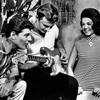
Joined: Mar 06, 2006
Posts: 1911
Wear gloves - I'm in the Rockies







|

Posted on May 12 2023 09:35 PM
We (The AquaSonics) did a song about Denver surf - it's on an SG101 comp, among other places. It's called Surf the Platte.
https://surfguitar101.com/downloads/details/612/
— "You can't tell where you're going if you don't know where you've been"
|
synchro

Joined: Feb 02, 2008
Posts: 4564
Not One-Sawn, but Two-Sawn . . . AZ.





|

Posted on May 12 2023 10:24 PM
Sonichris wrote:
We (The AquaSonics) did a song about Denver surf - it's on an SG101 comp, among other places. It's called Surf the Platte.
https://surfguitar101.com/downloads/details/612/
You nailed it. Instantly, I was on I 25 southbound, approaching the Alameda exit. I used to surf that mighty trickle, when I was a young firebrand. 
— The artist formerly known as: Synchro
When Surf Guitar is outlawed only outlaws will play Surf Guitar.
|


































